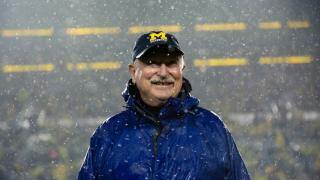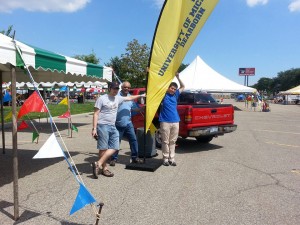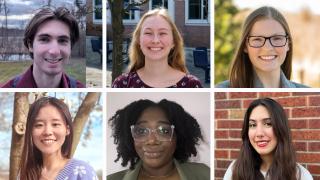

The Maker Faire is a two-day, interactive and family friendly summer event that features more than 400 exhibits, demonstrations and hands-on workshops. The event celebrates innovation and creativity—combining arts, crafts, engineering, food, music, science and technology with a do-it-yourself mindset.
As a first-year Maker Faire sponsor, UM-Dearborn provided additional parking and shuttle services for event attendees. In return, CECS received two premier exhibition locations—one in the Faire grounds and another in the Henry Ford Museum—where students, faculty and staff showcased interactive activities in robotics and computer gaming and offered 3-D printing and milling machine demonstrations.
This year’s Faire attracted more than 25,000 attendees. Many were families with children who were very engaged and enthusiastic about the CECS exhibits.
“CECS is a natural fit for the Maker Faire,” said Tony England, interim CECS dean. “As engineers, we use math and science to solve societal problems that are amenable to technical solutions. This often leads to crafting solutions through a ‘design-build-test’ process. Many of the Maker Faire participants are kindred spirits in following this process. Given this affinity, we were delighted to be an event sponsor and share our displays with the many families who attended.”
Providing outreach activities like Maker Faire exhibits to children allows them to explore what it might be like to be an engineer or computer scientist. Research also suggests that STEAM initiatives have a much greater impact on children whose parents encourage them to participate in these activities.
Nattu Natarajan, associate professor of electrical and computer engineering, helped run the robotics display, which featured an autonomous snowplow and a robotic arm. The robots were a big hit with young children and middle schoolers. Natarajan, who has a great rapport with children, put them in control of the robots, which escalated their excitement and awe.
“I was thrilled to see the kids, some as young as 8, drive the autonomous snowplow and interact with the line-following robot,” Natarajan said. “Many of them were fascinated to the point that they looked underneath the robot to see where its ‘eyes’ were located. It was heartening to see how the display inspired the children’s interest in robotics.”
Inside the Henry Ford Museum, CECS showcased computer gaming. CECS students set up a bank of computers for kids to challenge one another at video games. Winners earned prizes made by a 3-D printer. The students also took time to speak with the children about how they designed the games.
CECS also participated in an associated event called the “Hack the Museum” Hackathon. Bruce Elenbogen, associate professor of Computer and Information Science, joined members from Compuware, The Henry Ford and “Make Magazine” as an event judge. The event featured 25 teams in a one-day design and development challenge, as they created a digital museum experience using The Henry Ford’s digital archives. Sam Harrell, a UM-Dearborn CIS alumnus, won this year’s competition.
CECS intends to partner with The Henry Ford again for next year’s Maker Faire and increase the number of STEAM activities for attendees.
CECS’ Extended Learning & Outreach (ELO) departmentprovides K-12 Outreach to schools in Southeastern Michigan to increase exposure in STEAM.




